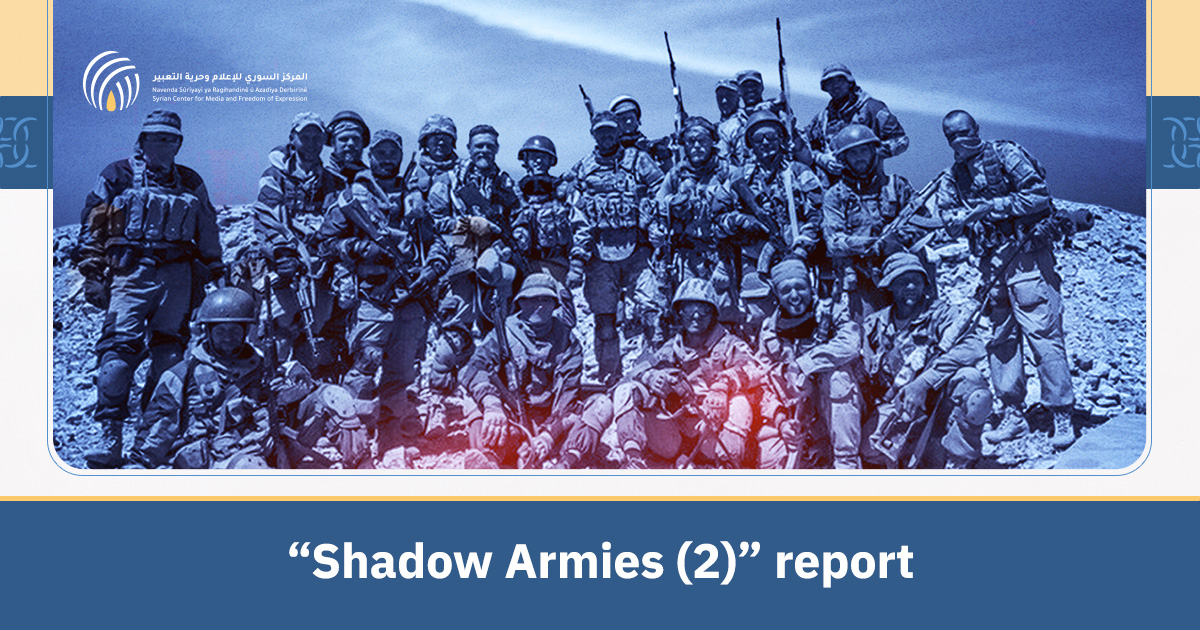The second Shadow Armies report, published in 2024, provides an in-depth analysis of foreign fighter groups in Syria that meet the definition of mercenary forces. It further explores the involvement of private security firms and private military companies in various armed conflicts, with a focus on their role in Syria. The presence of diverse foreign forces, militias, and security entities not only prolongs the conflict but also hinders peaceful resolutions. The consolidation of militia and de facto authority power, coupled with their usurpation of state functions and resource control within war economies, has significantly weakened the already fragile state infrastructure. This shift in power dynamics, alongside the erosion of longstanding social structures due to forced displacements primarily targeting opposition areas, has altered societal power centers. Displaced populations flee to neighboring nations or further afield, leaving behind areas now dominated by militias and mercenary groups. These areas, critical to economic sectors, are now under the guard of military and security companies, particularly those protecting Russian interests and military bases in Syria.
Since the initial Shadow Armies report in 2022, the likelihood of resolving the conflict has diminished. Concurrently, Syria faces escalating poverty and deteriorating economic conditions, affecting a vast portion of the population. This dire situation has led to an increase in mercenary recruitment. Media reports indicate that Syrians are now fighting as mercenaries under the banners of Russia and Turkey in various conflicts, including the Armenia-Azerbaijan dispute in Nagorno-Karabakh, Libya, northern Mali in Africa,,, Venezuela in South America, and in the Russian invasion of Ukraine.,,, Iran has also entered the drive to recruit Syrian fighters, and through its recruitment center offers them to combat alongside the Houthis in Yemen under three-year contracts, with civilians receiving up to $1,000 monthly and military personnel $1,200.
This report, across its two editions, aligns within the established vision of the Syrian Center for Media and Freedom of Expression (SCM) to address the human rights situation in Syria. This mission is part of a broader, sustained initiative to advance and embed human rights principles through multifaceted strategies. These include documenting, publishing, and mapping all human rights and humanitarian law violations within the Syrian conflict’s scope. Additionally, the center focuses on combating impunity by holding perpetrators accountable and advocating for the use of judicial mechanisms to bolster accountability for these violations, extending across various legal jurisdictions, including international and universal jurisdictions.
On August 22, 2023 the Syrian Center for Media and Freedom of Expression filed a complaint with the National Criminal Investigation Service (NCIS) in Norway. The complaint targeted Hussein al-Hajimi, a former Iraqi Popular Mobilization Forces (PMF) militia member and current Norway resident, accused of committing murder and serious violations while serving with the PMF in Syria, calling on the NCIS to open a thorough investigation into al-Hajimi’s self-disclosed admissions which he shared on the social networking platform TikTok. The NCIS confirmed its receipt of the SCM’s complaint on August 21, 2023.Furthermore, the SCM, in cooperation with international partners, pursued legal action in the Russian judiciary against members of the Wagner Company, accusing them of crimes against Syrian citizens. Following the exhaustion of all legal venues in Russia, the SCM proceeded to file a lawsuit with the European Court of Human Rights.





